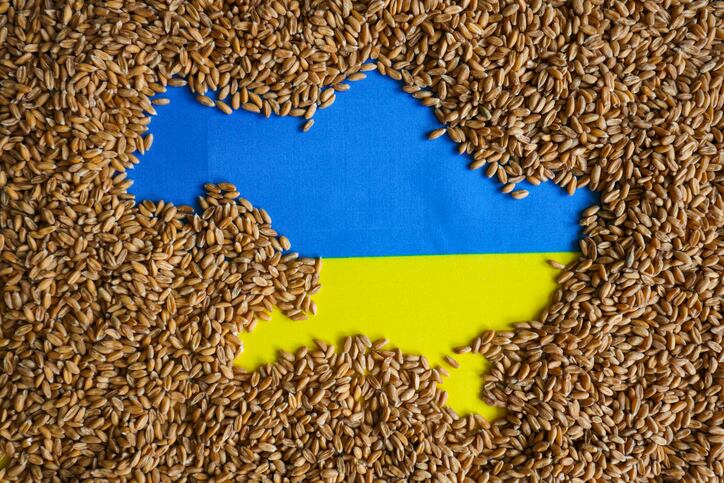The Black Sea grain deal had helped to calm volatile markets for food and grain, helping stabilise food prices. But Russia has now pulled out of the deal – effectively to prevent Ukraine selling grain and gaining hard currency. And experts fear the move could plunge consumers in those countries particularly exposed to Ukrainian and Russian food supplies, especially in North Africa and the Middle East, into food shortages. It could also prompt a fresh round of potentially destabilizing global food inflation here in Europe, they warned, and push up prices for manufacturers and consumers.
“By withdrawing from the Black Sea Grain Deal, Russia continues to use global supplies of grain as a weapon of war,” said food security expert Professor Tim Benton, Research Director at Chatham House.
“Through withdrawing from the deal, Russia is not attacking Ukraine but is aiming to gain political leverage by pressuring the globally vulnerable, most food-insecure people,” he told FoodNavigator. “Whilst unlikely to create another food price spike, given current global supplies, it is likely nonetheless to tighten international markets and put more upward pressure on prices.”
Global cereal stocks are stable for this year, added Alberta Guerra, Food Policy Expert at ActionAid. Nevertheless, the collapse of the deal now offers an opportunity for financial actors speculating on food and fertilizers to bid up prices sufficiently to lock in higher prices over a season. The news therefore once again exposes the failings of the global food system, he claimed. For example, 75% of the world’s nutrition comes from 12 crops and 5 animal species, while just three crops - maize, wheat and rice - constitute nearly 60% of humans’ caloric needs.
“The problem is in our food system,” said Guerra. “Production of these three grains plus soybeans is concentrated in a few key regions, which makes food production vulnerable to shocks.” It’s therefore “vital that grain can continue to be exported from Russia and Ukraine, and at the same time that import dependent countries diversify their sources and reduce reliance on grain markets for their food security.”
Recent research by ActionAid found that communities have been severely impacted by food prices, often paying up to 10 times what they spent before the start of the Ukraine war.
“We need to see countries rebuilding their capacity to produce the food they need to break their dependence from global market that shows so volatile and vulnerable to shocks,” Guerra said.
“Food should never be used as a weapon of war and it’s vital the international community works to find a solution now so emergency food relief can still be provided to those who need it most, especially in East Africa,” added Graham Gordon, head of public policy at CAFOD. “This crisis shows we need to fix the global food system so it cannot be held to ransom by governments. That’s why farmers need to be supported to grow food sustainably and locally in a way that builds resilience to climate change. Otherwise, millions of people around the world will continue to face starvation.”
Sofia Monsalve Suarez, expert with IPES-Food and secretary general of FIAN International, said: “Since food prices spiked and hunger surged last year, governments have been relying on stop-gap solutions.
“The Black Sea grain deal has helped provide some respite, calming highly volatile food markets and preventing last year’s food price crisis from being even worse.
“Russia pulling out of the Black Sea grain deal is bad news for the 2.4 billion people suffering food insecurity right now – who could now see food prices rise again, as speculators take their cues from the diplomatic situation. But it was always the most fragile of solutions.”



